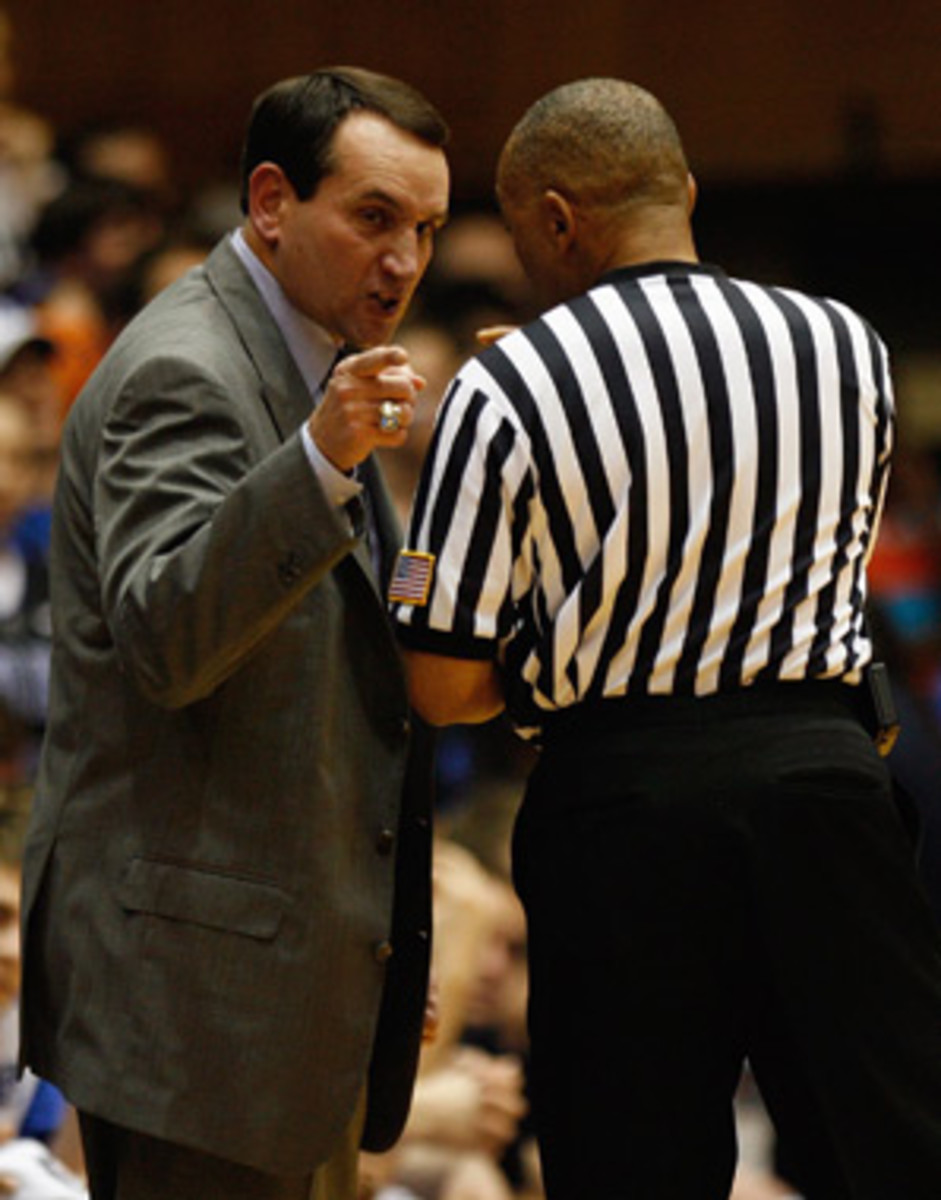Mythbusters: Duke gets all the calls
For the past week, college basketball blogs have picked back up the age-old refrain that Duke gets all the calls from the referees.
First, there was this video of the referees failing to call freshman guard Elliot Williams for moon walking across the floor during the Blue Devils' 101-91 win over Wake Forest. Then, in Duke's very next game, a 72-65 victory over Virginia Tech, the referees swallowed their whistles as Duke guard Jon Scheyerpicked up his pivot foot three times with 14 seconds left and the Blue Devils up by only three.
YouTube seems to finally have corroborated the conspiracy theory that Duke haters have long believed. As the college basketball blog Storming the Floor states, "I guess this really validates the claim by about 90 percent of college basketball fans that Duke gets all of the calls."
But do a pair of Web videos really prove that Duke gets preferential treatment from the referees? Probably not. Let's step back for a second and take a look at the stats to finally debunk the myth that Duke gets all the calls.
Since no one, not even college hoops stats guru Ken Pom, keeps track of missed traveling violations, we will analyze the Blue Devils' foul and free throw differential as compared to their opponents.
This season, Duke averages 18 personal fouls a game, while its opponents average 21. The Blue Devils also average seven more free throws a game than their opponents. This would probably lead all the Duke-haters to say, "See, I told you so." (I can already hear my cousin Daniel, a UNC alumnus, screaming about how Coach K lets the refs touch his gold medal before every game.)
However, a differential of three fouls and seven free throws per game is not actually that egregious compared to other top-tier teams. Connecticut averages nine fewer fouls per game than its opponents and 15 more free throws. Oklahoma, as well, accumulates four fewer fouls and eight more free throws. In fact, every team in the top 10 -- except Louisville, which gets called for the same amount of fouls per game as its opponents -- averages fewer fouls and more free throws than their opponents. So, these general stats do not necessarily indicate that the refs favor Duke, just that the Blue Devils, like all other good teams in America, get fouled more than opposing teams.
Part of the problem is that taking statistics from an entire season creates too large a data set to accurately judge favoritism. There is too big a skill differential -- say, between Duke and Presbyterian -- and too many referees from too many conferences to understand what's happening. The key is to limit the variables, and one way to do that is to consider only ACC games, which means only ACC referees.
In conference play, Duke averages 18 fouls per game, while its opponents commit 20. Yes, the Blue Devils still get two more calls a game on paper than their conference foes, but they are by no means at the top of the league in terms of fewest fouls. That award goes to rival North Carolina, which averages five less fouls per game that its opponents. In terms of Duke getting to the line more than other ACC teams, the Blue Devils shoot fewer free throws per game than Wake Forest, UNC and Virginia Tech.
Now that we've gone through this whole statistical analysis rigmarole, it's time to point out that raw numbers of fouls and free throws are not even an accurate judgment of whether Duke gets preferential treatment from the referees. The whole point of Coach K's offense is to create situations in which his players get fouled. In the motion offense that Duke uses so effectively, players dribble penetrate, draw a help defender, then dish to the open man, who either scores or is fouled. The whole point of the offense is to get to the foul line so, of course, the Blue Devils' opponents are going to have more fouls called on them.
In the end, it's not really important if the classic "Duke gets all the calls" complaint is, in fact, true. Regardless of validity, the myth will always be propagated by those who hate Duke, and there are many of them, because that is how Duke makes opposing fans feel -- like they are getting a raw deal. Maryland grad Norman Chad put it nicely in a column he once wrote for the Washington Post, "Duke players don't get into foul trouble, they get into fellowship programs."
(Special thanks to Statsheet.com for making this article possible. The mailbag is open. Send all comments to Jacob.Osterhout@gmail.com.)






